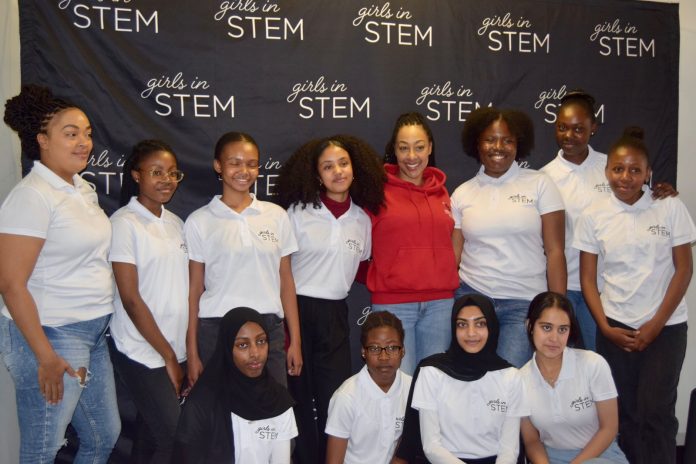Fintech specialist e4 is celebrating a major milestone of its Girls in STEM program, an initiative dedicated to empowering young girls in underprivileged areas to pursue careers in science, technology, engineering, and mathematics (STEM). Launched three years ago, the program aims to address the gender imbalance in STEM fields and provide girls with the skills and support needed to succeed in the digital age.
As the first cohort of 16 girls reaches matric, the initiative is seeing the fruits of ongoing, thoughtful investment in girls’ education as participants look forward to bright futures in technology and innovation. Phylla Jele, Human Resources and Transformation Executive at e4, says the program emphasises meaningful partnerships in driving socio-economic development for promising girls while giving them the tools to pursue a career at the forefront of technology. At e4, we are passionate supporters of initiatives that enhance technology education. We understand the importance of investing in this field to foster the next generation of young leaders who will drive digital innovation.”
The program, in collaboration with the Melisizwe Computer Lab Project, offers a comprehensive curriculum that includes technical training, mentorship, and personal development. Girls are selected based on attitude and aptitude and receive training in science, maths, engineering, software development, and robotics. Mentorship from e4 personnel and other industry leaders plays a critical role in the success of the program, providing guidance and support to the girls throughout their journey.
Candice Kern-Thomas, CEO at Melisizwe, says the program not only has a positive personal impact on the girls but also contributes to the much-needed broader goal of creating a talented pipeline of future leaders capable of fully participating in tomorrow’s digital economy. “e4 was the first sponsor of the Girls in STEM program. They assisted us with the funding to make this program possible and allowed us to reach as many girls in under-resourced areas as possible. In addition to the financial assistance, e4 has also volunteered their staff members to join our mentorship program. With youth unemployment being a huge challenge in South Africa, corporate investment in the future of the youth, particularly in townships and rural communities, helps break the cycle of poverty.”
The Girls in STEM program has achieved remarkable success, with a 51% retention rate and notable improvements in academic performance and self-confidence among participants. The program has also adapted to changing educational needs, incorporating online learning and social media channels to enhance engagement and accessibility. Most of the girls have applied to tertiary institutions to study STEM-related subjects, with some already having been accepted with green carpet status (where the university offers to cover some of their fees) pending their final results.
Looking ahead, e4 and Melisizwe aim to scale the program nationally, extending its reach to more girls across South Africa and beyond. “To effect meaningful change, we need forward-thinking and impactful investment from corporates like e4,” says Kern-Thomas. “The last three years of the program was an exercise in validation for Melisizwe. We have managed to carve out a program so unique it is not currently being offered anywhere else. By working together with e4, we are ensuring a brighter future for girls in STEM and the next generation of IT-qualified employees and leaders.”
The program, in collaboration with the Melisizwe Computer Lab Project, offers a comprehensive curriculum that includes technical training, mentorship, and personal development. Girls are selected based on attitude and aptitude and receive training in science, maths, engineering, software development, and robotics. Mentorship from e4 personnel and other industry leaders plays a critical role in the success of the program, providing guidance and support to the girls throughout their journey.




